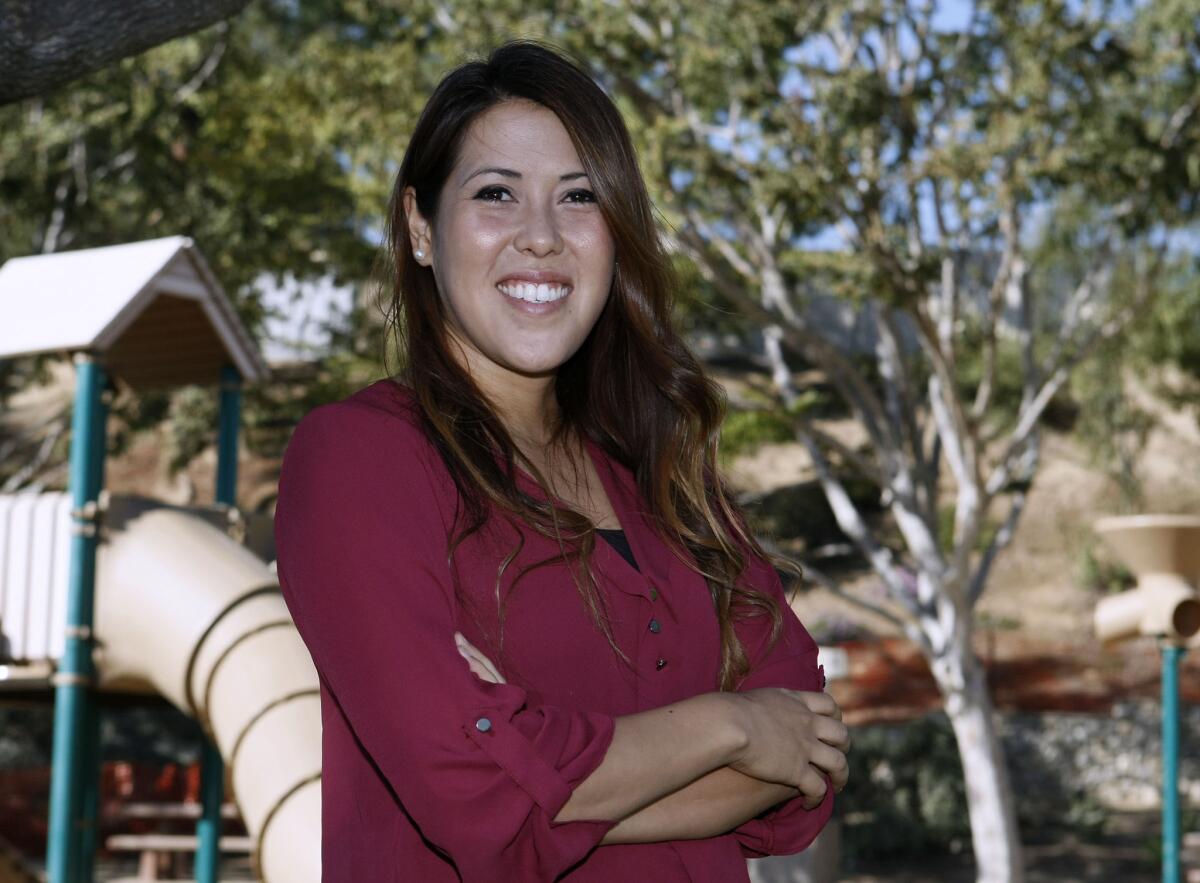Riel would emphasize services for students

Karyn Riel was raised in the westernmost part of the city, known as the Sagebrush area, before her family moved into an area of the city that feeds into the La Cañada Unified School District.
She graduated from La Cañada High School before heading to San Francisco State University to study psychology. Now a doctorate student at Pepperdine University and a counselor at multiple sites, the 29-year-old school board candidate is heading a campaign focused on addressing student needs. Riel chatted with the Valley Sun one recent afternoon in Memorial Park.
Valley Sun: What is your motivation for running? Earlier this year, you mentioned the suicide at La Cañada High School had a big impact on you.
Riel: At the time of the suicide, I was actually working with a girl in high school who was also suicidal. I was going there a couple of days a week just to make sure that she had the support and the services that she needed. I remember coming home that day and hearing that there had been a lot of police at the school. I looked into what happened and found out that there had been a suicide.
I know there are a lot of kids who grapple with the idea of taking their own lives and it’s due to a lack of resources or due to a lack of support. After seeing that happen in La Cañada, I just felt like this is something that could have been avoided here if there were the right services set up and if teachers were trained about the warning signs.
Any other initiatives you’d bring to the board?
The reason mental health is so important to me is I think a lot of people think it exists in a vacuum, [and they think] “well, my child isn’t clinically depressed or isn’t on the autism spectrum, so it doesn’t apply to me.”
If there’s one student who is easily distracted, a lot of times that can impact the whole classroom and teachers have said that one of the hardest aspects of teaching is handling behavioral and emotional problems that are not related to the classroom.
They are not trained for that; they don’t have the resources to handle that. By bringing in counseling services, it could actually help reduce the stress level of the teachers and give them more opportunities to be teaching the materials that they need to be teaching, rather than behavioral management or focusing on conflicts among peers.
Also, research shows that having an adult on campus that a student relates to can be a strong predictor on how they’re going to do academically.
Any other main priorities or goals?
I’d like to see a more integrated approach to the way [board members] are addressing student needs. I’d like to see more feedback from the teachers as well as the students. The students are, after about third grade, able to provide more feedback about their own experiences. I think to really provide a comprehensive educational approach, we need to kind of be consulting with everyone involved. I’d also like to see more programs incorporated that will facilitate learning on different levels, whether that is through mentorship or whether that is through bringing in more music or nutrition [programs].
Do you support a high parcel tax rate?
Theoretically, I don’t support the parcel tax. I think we ask a lot of our parents and our community and I think it’s kind of unfortunate that we have to keep depending on this resource to a point where it is putting a lot of families in challenging positions. Still, given the current deficit, I know that there isn’t another option for the short term. Though I don’t want to see it necessarily renewed or increased in the future, while we are implementing this parcel tax, I’d like to see other avenues for revenue being considered and implemented so in the future it doesn’t need to be continued or relied upon.
How would the board find other ways to receive funding?
Through partnerships. I think there’s a lot of nonprofits, there’s a lot of community organizations, and I think through other higher-education sources, they can start to tap into resources that can be low-cost or no-cost versus continuing to take these routes where it does require more funding.
I think we could maintain a lot of our extra-curriculars through these nonprofits and outside organizations.
Having such a small school district, we do have the opportunity to apply to a lot of pilot studies, which could receive either state-level funding or national funding, depending on the type of grant we wanted to apply for. It’s a way to be innovative and stay on top of the new avenues for education without actually dipping into the pocketbooks of the families.
This interview was edited for space and clarity.
--
Follow Tiffany Kelly on Google+ and on Twitter: @LATiffanyKelly.
RELATED: